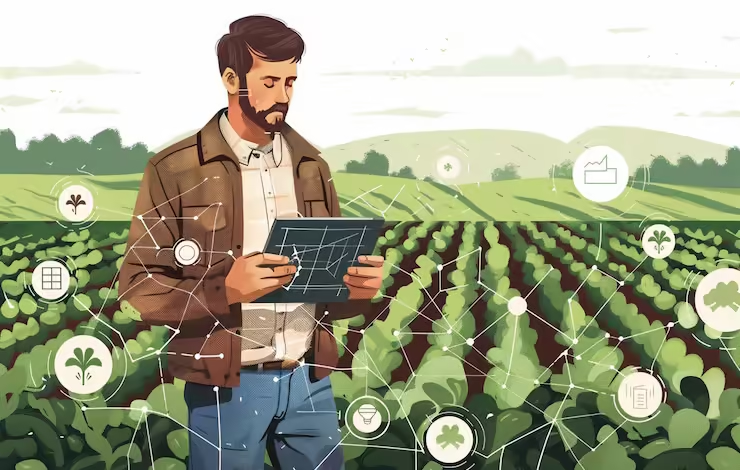The Future of Farming: Strategies for Greater Production

As the world population continues to climb, the agricultural industry faces mounting pressure to enhance food production while conserving resources and minimizing environmental impact. The future of farming hinges on the adoption of innovative strategies that not only boost productivity but also ensure sustainability.
This article delves into several pivotal areas that are shaping the future of agriculture: innovative techniques, technology, sustainability, and strategic planning.
Innovative Techniques to Boost Agricultural Yields
Traditional farming methods are reaching their limits, prompting the need for innovative approaches to increase agricultural yields. One such technique is vertical farming, which leverages vertical space to cultivate crops in stacked layers. This method is particularly effective in urban environments, allowing food production to occur closer to city centers, thereby reducing transportation-related emissions and costs. Vertical farming also drastically reduces water usage compared to conventional methods, making it a highly sustainable option.
Another promising approach is precision farming, which uses data analytics, sensors, and GPS technology to optimize field management. This involves monitoring variables such as crop health, soil conditions, and weather patterns to make informed decisions about planting, fertilizing, and harvesting. By tailoring interventions to specific field conditions, precision farming enhances yield while minimizing waste and environmental impact.
Harnessing Technology for Better Crop Efficiency
Technological advancements are reshaping agriculture by providing tools that significantly improve efficiency and productivity. Drones, for example, have become invaluable for crop monitoring, irrigation management, and even planting. They offer farmers real-time data and aerial imagery, enabling the swift identification of issues such as pest infestations or irrigation deficiencies.
Moreover, the development of RNA based pesticide solutions represents a groundbreaking advancement in pest control. This technology targets the genetic makeup of specific pests, reducing the need for broad-spectrum chemical pesticides. Such precision not only diminishes harm to beneficial insects and the environment but also aligns with sustainable agricultural practices.
Sustainable Practices for Enhanced Agriculture
Sustainability is a cornerstone of future farming strategies. As climate change continues to threaten agricultural productivity, adopting sustainable practices is essential for long-term viability. Techniques such as crop rotation and polyculture improve soil health and biodiversity, reducing reliance on chemical fertilizers and promoting a balanced ecosystem.
Water conservation methods, like drip irrigation and rainwater harvesting, are also gaining traction. These practices ensure efficient water usage, particularly in regions susceptible to drought. By implementing these sustainable methods, farmers can maintain soil fertility and productivity, ensuring food security for future generations.
Effective Planning for Improved Agricultural Results
Strategic planning is crucial for maximizing agricultural output. This begins with selecting crop varieties that are best suited to local climatic conditions and strategically timing planting schedules to optimize growth. Integrated farm management systems, which combine crop production, livestock management, and resource management, lead to more efficient operations and increased profitability.
Government policies and support play a significant role in enhancing agricultural productivity. Investments in infrastructure, research, and development provide farmers with the resources needed to adopt advanced farming techniques and technologies. Collaborative efforts between governments, private sectors, and farmers are essential to drive innovation and ensure the agriculture sector remains resilient and competitive.
Conclusion
The future of farming lies in the effective integration of innovative techniques, advanced technologies, sustainable practices, and strategic planning. By embracing these strategies, the agriculture industry can address the challenges posed by a growing global population and shifting climate conditions. As farmers adapt and evolve, they will enhance production and protect the environment, securing a sustainable future for generations to come.
Do you want to know more about the future of farming? Keep following us for more updates and insights on this topic. Together, let’s build a brighter and more sustainable tomorrow through agriculture.



